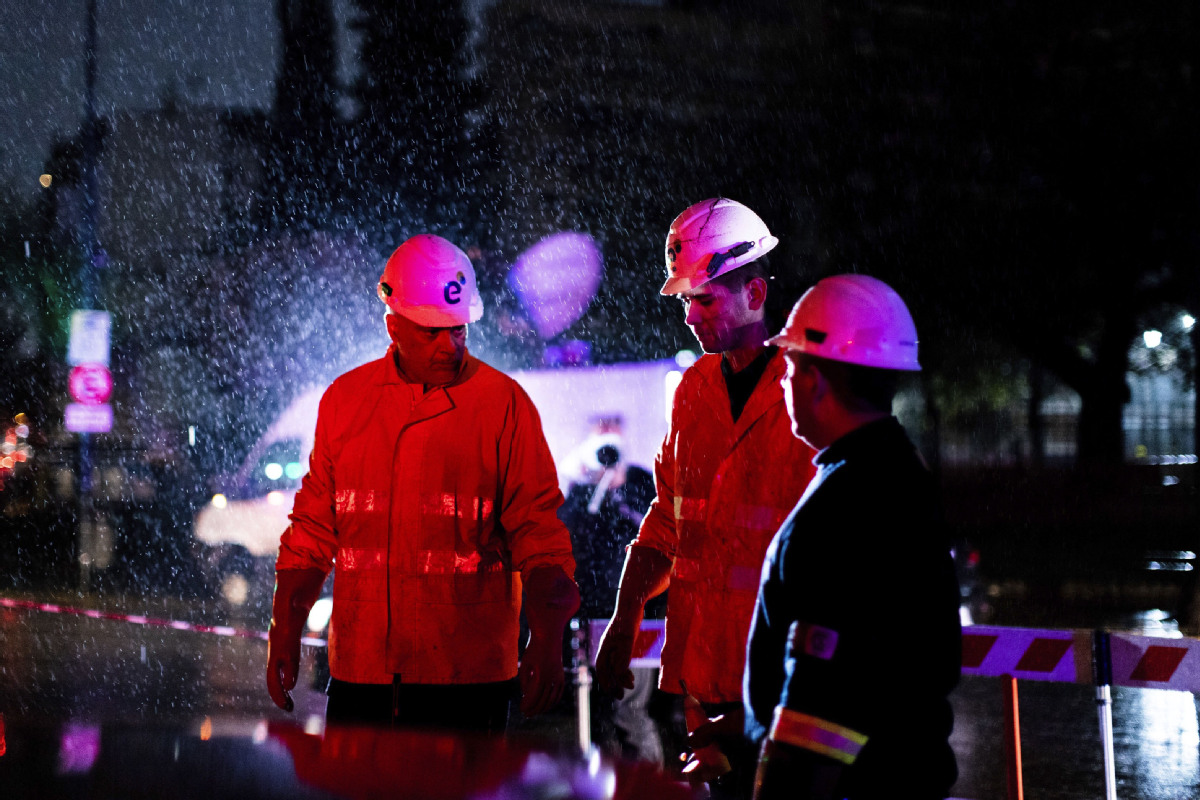Argentina, Paraguay, Uruguay restore power after blackout


BUENOS AIRES, Argentina-As lights returned across Argentina, Uruguay and Paraguay after a massive blackout that hit tens of millions people, authorities were still largely in the dark about what caused the collapse of the interconnected grid.
Argentine President Mauricio Macri promised a thorough investigation into what he called an "unprecedented" outage, one that raised questions about flaws in South America's grid, which connects many of the region's largest countries.
Energy officials said the results of the investigation would be available in 10 to 15 days, and they could not immediately provide details on the economic impact of the outage, which came on Sunday, a day before a national holiday in Argentina.
Power was fully restored by Sunday night.
Argentine Energy Secretary Gustavo Lopetegui said the blackout began with a failure in the country's "interconnection system", adding that it happens in other countries as well. But he said a chain of events took place later, causing a total disruption.
"This is an extraordinary event that should have never happened," he told a news conference. "It's very serious. We can't leave the whole country all of a sudden without electricity." He did not discount the possibility of a cyberattack, but said it was unlikely.
The collapse began at about 7 am on Sunday, with Argentina's population of 44 million and residents of neighboring Uruguay and some areas of Paraguay waking up to Father's Day in the dark.
Uruguay's energy company UTE said the failure in the Argentine system also cut power to all of Uruguay for hours and blamed the collapse on a "flaw in the Argentine network".
In Paraguay, power in rural communities in the south, near the border with Argentina and Uruguay, was also cut. The country's National Energy Administration said service was restored by afternoon by redirecting energy from the Itaipu hydroelectric plant the country shares with neighboring Brazil.
Public transportation halted in Buenos Aires, while phone and internet communications were disrupted, water supplies were cut off and shops were forced to close. Patients dependent on home medical equipment were urged to go to hospitals with generators.
Argentina's southernmost province of Tierra del Fuego was not affected since it is not connected to the national electrical interconnected system.
An Argentine independent energy expert said that systemic operational and design errors played a role in the power grid's collapse.
"A localized failure like the one that occurred should be isolated by the same system," said Raul Bertero, president of the Center for the Study of Energy Regulatory Activity in Argentina. "The problem is known and technology and studies (exist) to avoid it."
Although Brazil was spared this time, a similar outage in the region's largest country left more than 60 million in the dark in 2009, just as authorities scrambled to boost confidence in the nation's infrastructure before soccer's 2014 World Cup and the 2016 Olympics.
The power failure on Sunday came three months after crisis-torn Venezuela suffered its worst power outage with the lack of electricity endangering hospital patients.
Argentina has had a history of blackouts, but none like Sunday's failure, in which the power outage was more geographically widespread. Only the southern archipelago of Tierra del Fuego was unaffected because it is not connected to the main power grid.
"It's something that had never happened," said Alejandra Martinez, a spokesperson for the Argentine electricity company Edesur. The failure originated at an electricity transmission point between the power stations at the country's Yacyretá dam and Salto Grande in the country's northeast.
Many residents of Argentina and Uruguay took to social media to post pictures of their cities in the dark. Others blamed the electricity companies or the government or simply lamented that their plans had been disrupted.
Several Argentine provinces had elections for governor on Sunday, which proceeded with voters using their phone screens and built-in flashlights to illuminate their ballots.
"I don't remember anything like this in Uruguay," said Valentina Giménez, a resident of the capital, Montevideo. "What is really striking about this is that no one understands well what really happened."
AP - REUTERS - XINHUA

































